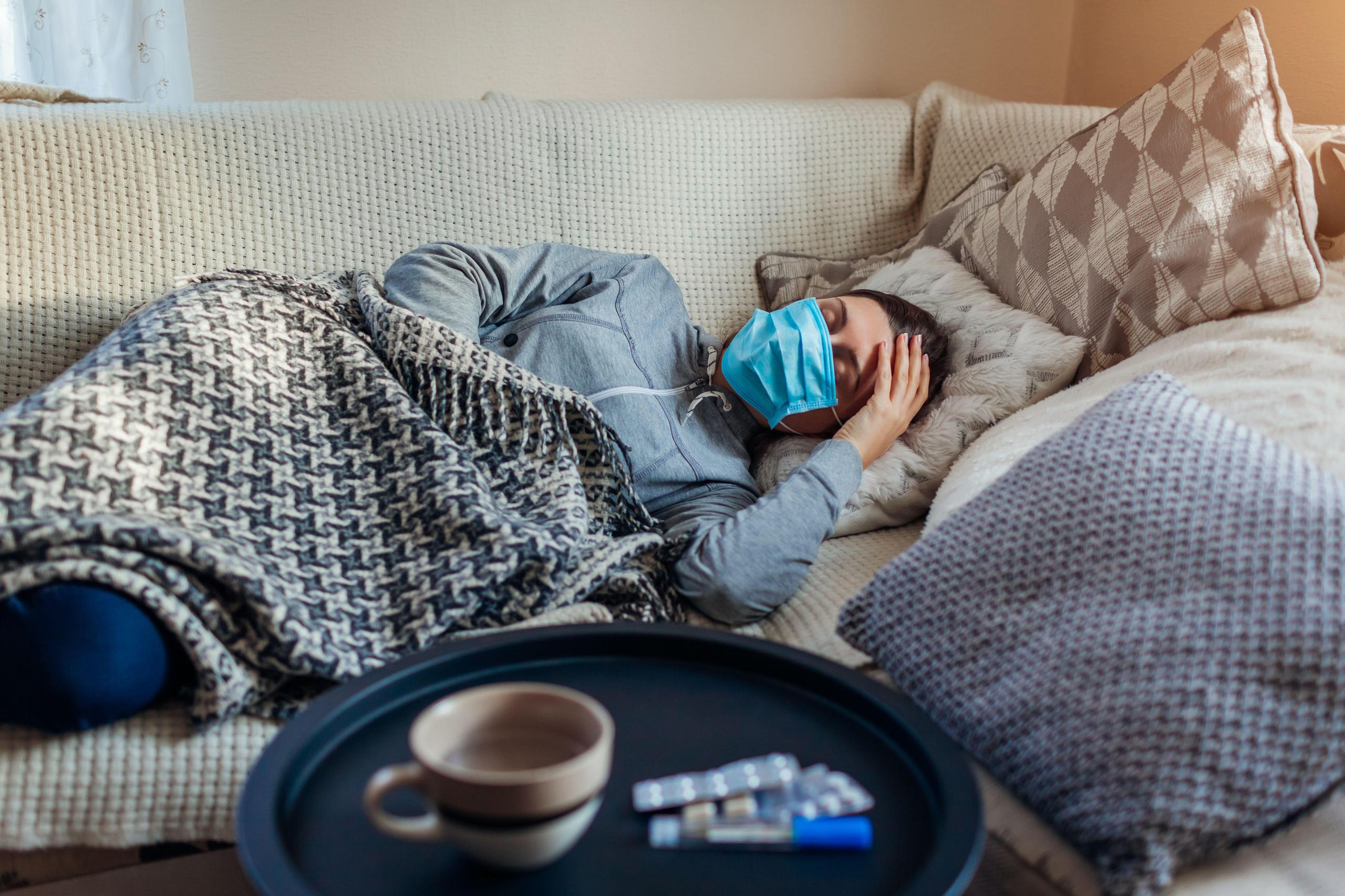
What have we learned about long Covid?

Most people who get Covid-19 won't become severely ill but significant numbers have had long-term problems after getting infected. How bad is the problem? How is society dealing with it? Is long Covid a threat to the health system? Research into long Covid is still in its infancy in Switzerland with many open questions.
Extreme tiredness, difficulties in dealing with everyday life, shortness of breath, loss of smell or taste: these are just a few of the many symptoms of long Covid. Some people who have recovered from the initial infection can suffer persistent health problems, such as “brain fog” or depression, while others complain of joint and muscle pain.
The long list of symptoms shows that Covid-19 affects the whole body. Yet there are still many open questions: What is the extent of the disease? What are the therapies? Who are the risk groups? What issues will employers, institutions and the insurance industry face in the long run?

More
Coronavirus: the situation in Switzerland
Different results
Several in-depth long Covid studies have been carried out in Switzerland, notably by the universities of Geneva, Lausanne and Zurich.
Despite this work, the exact number of Swiss residents suffering from long Covid symptoms six months after the original infection remains unclear, as results vary considerably between the studies.
Two studies conducted by Zurich University found that 20-25% of adults (PLOS OneExternal link) and around 2% of children (Journal of the American Medical AssociationExternal link) who tested positive were affected by long Covid.
In its study published in the Annals of Internal Medicine,External link Geneva University found that 39% of participants reported residual symptoms. However, these results are preliminary, as the research is continuing.
Milo Puhan, lead researcher of the Zurich Coronavirus Cohort StudyExternal link, attributes the variable results to the different collection times of the data. But he told SWI swissinfo.ch that the results were all pointing in the same direction.
The Federal Office of Public Health (FOPH) recently commissioned Puhan to summarise 70 long Covid research papers from all over the world. It was not an easy job, he explains: “The definition of long Covid differs between countries, and tests have been conducted at different times,” he explains.
When it comes to the prevalence of long Covid, Puhan believes the Swiss studies were comparable with other studies. “However, the medical effects and impact Covid-19 on our everyday life and work are still difficult to determine,” he says.

More
‘Long Covid’ sufferers fight for help and recognition
Healthcare system challenged
Puhan is certain that long Covid will place an additional burden on the Swiss healthcare system.
“We have to be prepared when it comes to providing special care and maybe even social services. This means we must keep an eye on how the situation unfolds and be ready to meet the needs – from low-threshold services to specialised consultations,” he says.
In summer 2020, Geneva University Hospital (HUG) introduced Long-Covid-ConsultationsExternal link, which are now assisting around 350 patients. The Geneva study is considered one of the first and most in-depth on long Covid in Switzerland, as Mayssam Nehme, first author and member of the consultation team, points out.
“In March 2020, we started following Covid-19 patients who had received outpatient care, as we didn’t understand what was happening,” she told swissinfo.ch. At one point the medical team realised that some people had long-term Covid-19 symptoms, such as fatigue, shortness of breath, headaches, loss of taste and smell.
“So, we decided to do a prospective study on the same people we were following in March 2020. We will continue to follow them over months and maybe years to see how their symptoms evolve.”

More
Long Covid: 40% still have symptoms after seven months
It is still unclear whether some of the symptoms discussed in the studies only occur after a Covid-19 infection or whether they can be attributed to other infections or have different causes. For a more in-depth analysis, a control group is now looking into the Geneva studies.
How does Switzerland fare?
Compared with other countries, Switzerland’s long Covid research is quite advanced, says Nehme.
“Switzerland was one of the first countries to start, along with the UK and the US. So, we took it seriously very early on,” she says.
One of the challenges Swiss scientists face is the relatively small number of patients they can study. Puhan adds that linking the various databases was also problematic in Switzerland. Connecting them up would allow scientists to find out who suffered from long Covid and who needed repeated medical treatment after the initial infection. “Denmark, Norway and England have systems in place that allow such links,” he says.
No research funds
Puhan laments the lack of money for long Covid research.
“Apart from Germany, Norway, England or the US, there have not been any calls to tender for long Covid research in Switzerland,” he says.
In the US, the National Institutes of Health (NIH)External link have invested more than $1 billion (CHF920 million) in long Covid research. Nehme hopes that the next calls for Swiss national funds will include long Covid projects. The Swiss National Science Foundation (SNSF) has already launched two invitations to tender for Covid-related research projects, namely the Special Call on CoronavirusesExternal link and NRP 78 “Covid-19External link. Another project, the NFP 80 “Covid-19 in Society”External link, is currently in the planning stage. The three above-mentioned studies include long Covid studies, SWI swissinfo.ch has learned.
Sufferers’ criticisms
In Switzerland long Covid sufferers have struggled for help and recognition, but finally their plight has been acknowledged, says Nehme.
“There’s more recognition in scientific circles. The scientific task force talked about it, and they even started to discuss it at the political level,” says Puhan. She agrees that the authorities are finally taking long Covid seriously.
One of the criticisms voiced by those battling long Covid was that scientists put too much importance on the numbers rather than researching what exactly helped individual patients recover.
The SNSF has reacted by inviting patients to join its Investigator Initiated Clinic TrialsExternal link to evaluate funding applications. The programme aims to answer medical questions “that are important to society, but not a priority for industry” the SNSF says on its websiteExternal link.
“I am a big fan of getting affected people involved in the research,” Puhan says about the SNSF programme. He also mentions another project – the Long Covid Science Board – that was established in Zurich. “With around 30 sufferers, we attempt to set up a research agenda that reflects their perspectives,” he says.
Nehme explains that researchers first had to understand the disease and determine the percentage and the frequency before they could investigate risk factors. “But we need to understand what helps,” she says. “We know that a multidisciplinary, structured approach has helped our patients a lot because all their symptoms are being recognised.”
Hotels reinvent themselves
She stresses that the first point of contact should always be a family doctor, but the centre could help in the long run.
“A centre for long Covid can offer a structured, multidisciplinary approach because you have your doctor, you have your tests, and you have your physiotherapy,” she says.
There have even been recent reports of Swiss hotels reinventing themselves amid the pandemic and offering care for long Covid patients. “It is important for patients to talk to each other and share their experiences, also with those who have recovered. This will certainly give them some hope,” Nehme says.
Translated from German by Billi Bierling

More
Swiss scientist warns of possible Covid ‘super strain’

In compliance with the JTI standards
More: SWI swissinfo.ch certified by the Journalism Trust Initiative





























You can find an overview of ongoing debates with our journalists here . Please join us!
If you want to start a conversation about a topic raised in this article or want to report factual errors, email us at english@swissinfo.ch.